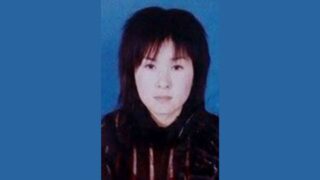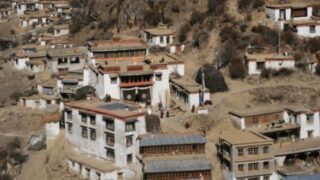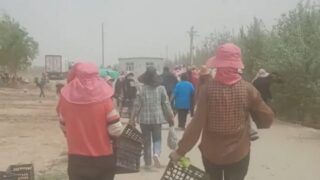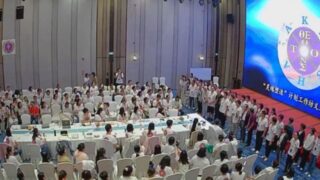Research by anthropologist Darren Byler uncovers gross violations of China’s own laws to punish Uyghurs and ethnic Kazakhs who pray and read religious books.
by Massimo Introvigne
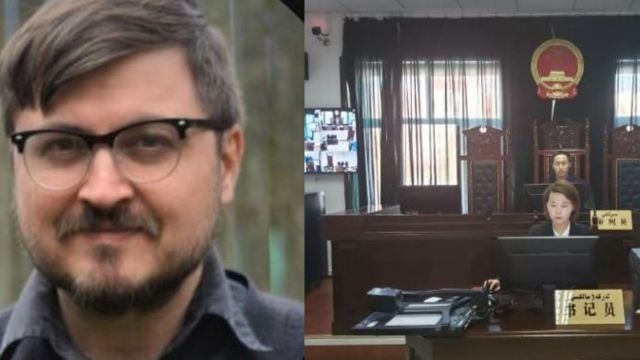

Darren Byler, an anthropologist, is Assistant Professor of International Studies at Simon Fraser University in Vancouver, British Columbia, and a specialist of Xinjiang. In new, fascinating research he reports a strange phenomenon. Irrigation channels are clogged in Southern Xinjiang but there have been no landslides or other natural incidents. They are clogged by books. Villagers go there at night and dump all the volumes they kept at home. The police are visiting their homes and would arrest them if they find religious, subversive, or otherwise “dissident” literature. Since they don’t know what books may be regarded as subversive, to be on the safer side they dump all of them. Elsewhere, books are dumped in the sewers, and they are also obstructed.
Byler reconstructs why this is happening in a new research essay published in “ChinaFile” on March 8. The starting point of his study is a leaked court verdict rendered on August 31, 2018, by the People’s Court in Jimunai County, situated near the Kazakh border, against an ethnic Kazakh called Nurlan Pioner and a Uyghur bookseller, Tokhti Silam. Pioner’s sister-in-law went through great risks to smuggle a copy of the court verdict to Kazakhstan, from where it reached Byler. Courts in Xinjiang kept these decisions secret and even for relatives of the defendants obtaining them is not always easy (but Pioner’s family did get a copy in this case).
Why is a decision of almost six years ago important? Because, confident that nobody outside the Chinese legal system would read it, the judges included the arguments by state-appointed defense attorneys. They did not really side with the defendants. Pioner’s attorney, after noting that he was an Islamic cleric who had been officially certified by the Chinese government and was part of state-controlled Islam, told the court that he “did not honor the support of the Party and the government that was given to him at all levels and relaxed his vigilance ideologically.” But, the attorney said, Pioner “did little harm to society or national unity. Therefore, we hope that when sentenced by the court, the punishment can be mitigated by focusing on reeducation rather than incarceration.”
However, even lawyers subservient to the CCP noted that there was something wrong with the dates. The two attorneys for Silam respectfully told the court that “Judging from the year and a month of the criminal charges, all the crimes committed by the defendant occurred between 1994 and 1995 and between 2011 and 2015. At that time, the relevant laws and regulations had not yet been promulgated.” This was also true for Pioner, and even in China laws stipulate that criminal statutes cannot be retroactive.


In the end, the argument of non-retroactivity was not accepted. Pioner was an important Muslim leader in Xinjiang’s ethnic Kazakh community. Byler calls him “a vital and eloquent religious leader” and “a kind of living Quran.” His role was acknowledged by the Chinese authorities, and he was part of the CCP-controlled China Islamic Association. He was arrested, however, for holding illegal prayer meetings, and conducting equally illegal Islamic marriages, and for having been found in possession of “extremist” and “subversive” books, some of them he had conspired with Silam to translate into Uyghur and print. Some of these books such as the collection of hadiths in Uyghur language “Garden of the Righteous” had originally been published through the CCP publisher Xinjiang People’s Publishing House and used without objection by China Islamic Association imams and mullahs. Only in 2017 was the text deemed “extremist.” One book the court found objectionable strongly criticized Israel and promoted a pro-Palestinian position. While the book would be judged extremist in Israel, similar positions can be found in the CCP’s own publications.
These activities were not illegal when Pioner performed them, and the books or most of them had not been banned, before 2017. The Kazakh religious leader had obtained them before. Yet, the law was applied retroactively. In addition, Pioner’s activities, seen from different points of view of present-day Chinese law, might have been qualified as “disturbing the social order,” “using extremism to undermine the enforcement of the law,” and “propagating extremism.” Rather than selecting one of the qualifications, the court absurdly sentenced Pioner to a jail term for each of them, then added up the three periods of imprisonment. The “living Quran” got seven years for “disturbing the social order,” five years for “using extremism to undermine the enforcement of the law,” and five years for “propagating extremism.” Then the terms were added up, and Pioner was sentenced to seventeen years in jail. Silam got “only” thirteen years, reduced to eleven.
Byler’s study offers a rare glimpse on how justice is administered in Xinjiang to disrupt the local religious networks, including those part of the “official,” state-controlled Islam, when their leaders become too popular and try to actively reinforce the Muslim identity of their devotees. No wonder they end up dumping books in irrigation channels and sewers at night, to avoid long jail terms for “possession of extremist literature.”


